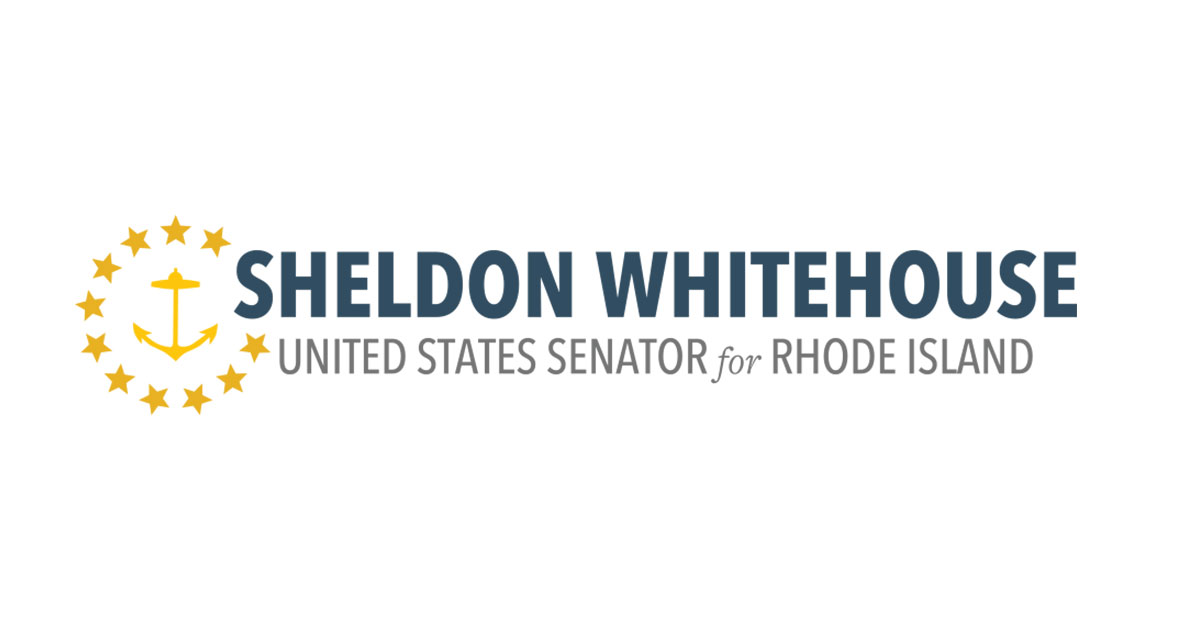Source: United States Senator for Rhode Island Sheldon Whitehouse
07.21.21
Senate Caucus on International Narcotics Control to Prioritize Exposing Drug Trade Networks and Supporting Americans Battling Addiction
Washington, DC – In case you missed it, U.S. Senator Sheldon Whitehouse (D-RI) led his first hearing as Chairman of the U.S. Senate Caucus on International Narcotics Control with Co-Chair Sen. Chuck Grassley (R-IA) on Tuesday. The bipartisan Caucus, which explores international and domestic strategies to fight drug trafficking, is also focused on the prevention and treatment of substance use disorders. Information about witnesses and prepared testimony can be found here.
The Senator’s opening remarks, as-delivered, are below.
Welcome everyone to our first Drug Caucus hearing.
Drug traffickers prey on American demand for illegal drugs. The consequences for our people, our communities, and even our democracy are deadly.
My goal, in my time as Chairman of the Drug Caucus, is to shine a light on the dark economies drug traffickers harness to hide their ill-gotten gains. In coming hearings, we will examine how drug trafficking networks exploit our rule of law and financial systems to sustain their criminal enterprises. We will out lay the foundation for this work with today’s hearing, which focuses on the federal response to the drug overdose epidemic and the drug threats that have emerged or changed as a result of the COVID pandemic.
After a modest drop in 2018, overdose deaths surged to over 93,000 last year—a new record. Four hundred of them were my fellow Rhode Islanders. While synthetic opioids, like illegally manufactured fentanyl, are the primary driver, these deaths often involved multiple substances used together.
This dramatic increase, accelerated by COVID, underscores the need to revise and improve our drug policies.
An effective strategy should:
- reduce U.S. demand for illicit drugs by expanding prevention, treatment, and recovery infrastructure; and,
- build and strengthen our domestic and international partnerships to reduce supply; and
- attack the financial networks that drug traffickers utilize for their ill-gotten gains.
We know prevention and treatment save lives and money. The National Institute on Drug Abuse estimates that illicit drug use costs the United States over $600 billion per year. Every dollar invested in evidence-based prevention can save up to $20, and every dollar invested in treatment can save up to $7. So we have to continue to invest in effective prevention, treatment, and recovery programs.
In recent years, we’ve enacted bipartisan legislation to do this, including my bill, CARA, and provisions of CARA 2.0. These laws have infused billions of dollars into our substance abuse prevention, treatment, recovery and enforcement infrastructures.
But more remains to be done, which is why I introduced CARA 3.0, a bipartisan bill to invest $785 million into expanding access to treatment and building the addiction medicine workforce. It also includes measures to ensure equitable and culturally-competent care.
The COVID pandemic forced us to expand access to treatment through new strategies and technology. I have introduced legislation to permanently allow prescribers to use audio-video telehealth evaluation to prescribe Schedule III and IV medications to treat substance use disorders, and to allow for Medicare reimbursement for those services. The pandemic forced this innovation, and now we know it can work. We should seize the moment, which is why I am pleased to see that ONDCP’s Statement of Policy Priorities largely aligns with the provisions in these bills.
As the success of the CARA legislation shows, efforts to reduce demand for drugs need to emphasize public health. Still, we must think clearly about the vast supply of drugs flooding our communities from abroad, and what it will take to stem that flow. With a skilled chemist and the right precursor chemicals, drug traffickers can produce an infinite array of new synthetic drugs to wreak havoc in our communities. Traffickers in Central and South America can easily obtain those precursor chemicals. So, an effective federal strategy must strengthen international partnerships to attack the supply chain.
Finally, given that drug traffickers are motivated by money, an effective federal strategy should explicitly prioritize efforts to understand and aggressively attack the financial networks traffickers exploit. As part of this effort, ONDCP should convene an interagency working group to determine whether the disruptions in trade based money laundering schemes, dark web activity, and bulk cash smuggling that occurred during the COVID-19 pandemic can be maintained.
The rapid escalation of drug overdose deaths during the pandemic means we must reexamine and strengthen our existing drug policies. At the state level, I’m particularly proud of the work that the Rhode Island has done so much to refine its policies under the leadership of Womazetta Jones. We must mirror that success on the federal level.
I look forward to hearing what witnesses think of the federal response to the drug overdose epidemic, how the pandemic has deepened the crisis, and what we can do to save lives.
I recognize Ranking Member Grassley for his opening statement.
